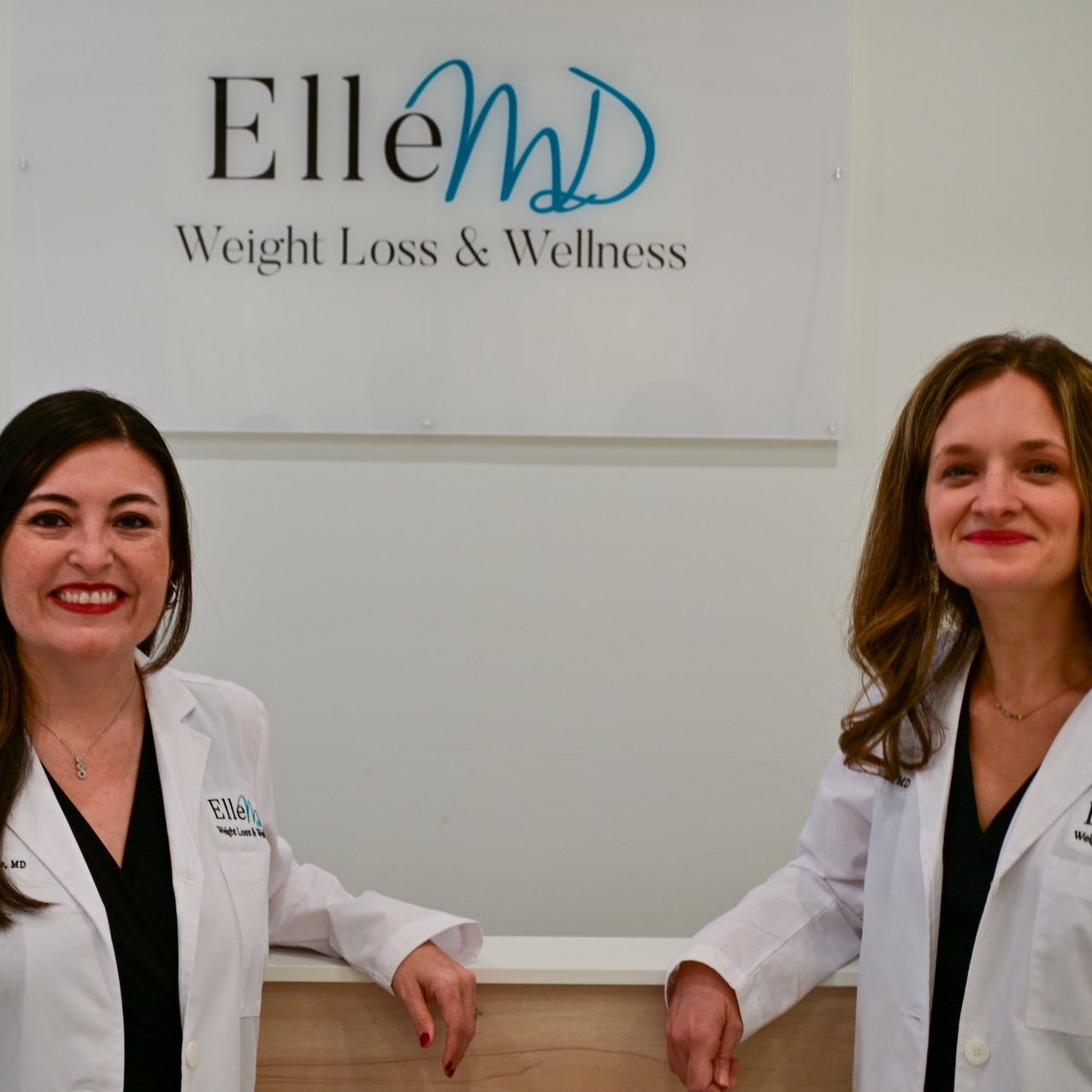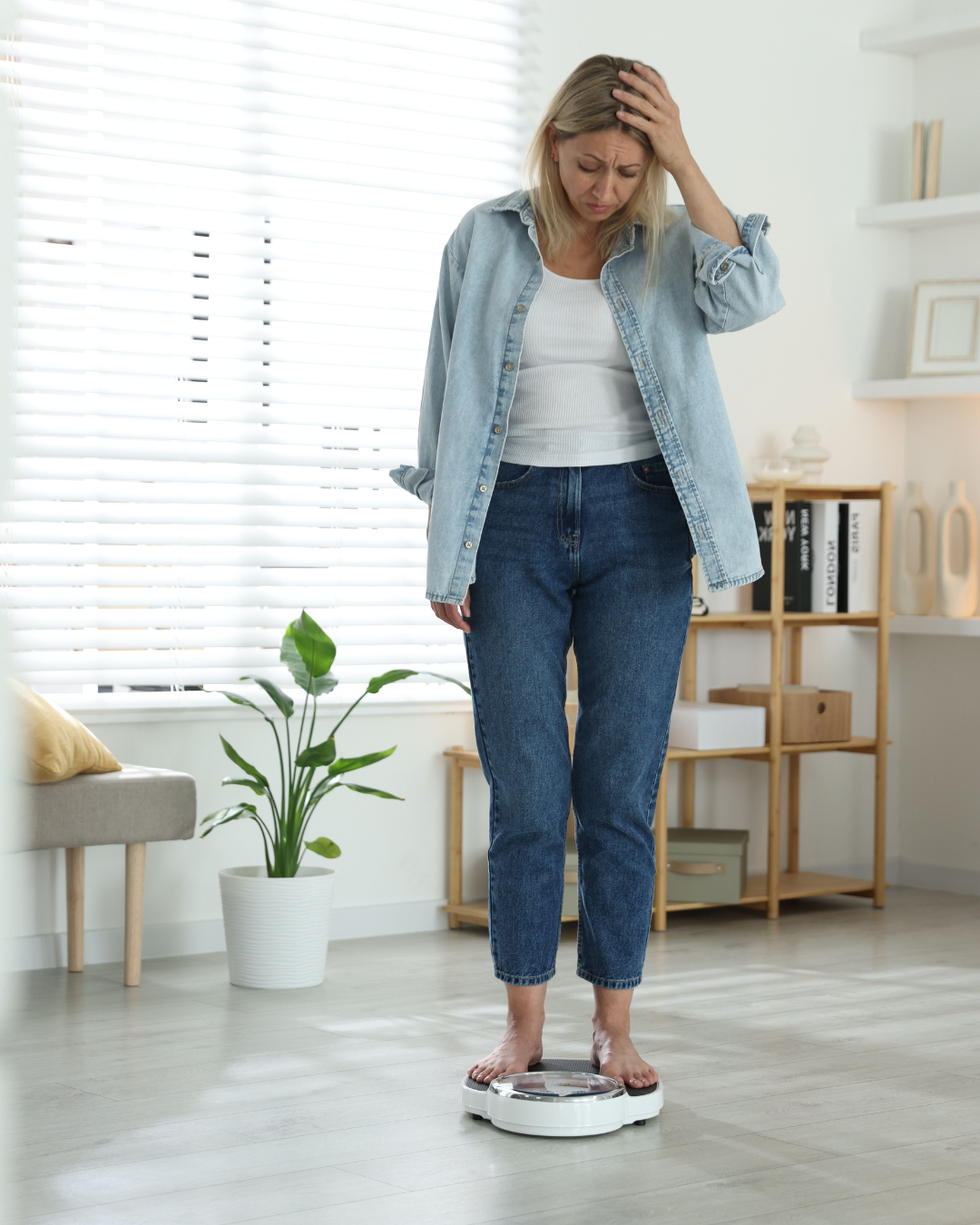What type of doctor should you see for weight loss?
If you’ve been trying to lose weight and nothing seems to stick, it might be time to get support—but knowing what type of doctor to see for weight loss can feel overwhelming. From primary care physicians to endocrinologists, weight loss clinics, and functional medicine doctors, there’s no shortage of options, yet not all approaches are created equal. The right provider won’t just hand you a calorie goal—they’ll help you uncover the real reasons your body is holding onto weight, whether it’s hormonal, metabolic, or lifestyle-related.
In this guide, we’ll break down the differences between common weight loss physicians and help you understand when it’s time to seek medical support—especially if you’re looking for a sustainable, root-cause approach in Michigan.
Because here’s the truth that so many women learn the hard way: when you reach your 40s or 50s, your body changes. Hormones shift. Energy levels drop. Sleep becomes lighter. Your stress tolerance might shrink. And suddenly, the things that used to work—no longer do.
You’re not imagining it. And you’re not alone.
In case we didn’t meet—we’re Dr. Erin Hendriks and Dr. Maricela Castillo MacKenzie, founders of Elle MD,
a functional medicine clinic based in Royal Oak, Michigan. We’ve worked with hundreds of women who describe this stage of life as a kind of emotional dissonance—a painful mismatch between how they feel inside and the reflection they see in the mirror. If you’re looking for
weight loss doctors in Michigan, you’re in the right place.

Understanding your options for weight loss care
Weight gain in midlife is never just about food. IIt’s about the complex, often invisible interplay between your hormones, stress levels, sleep quality, gut health, insulin sensitivity, and muscle mass—all of which tend to shift as you enter your 40s and beyond. That’s why it’s so important to choose a physician who looks beyond the scale and into the root causes of why your body is holding on to weight.
Which type of doctor is best for weight loss?
Let’s walk through the most common doctors women consult—and what they can (and can’t) offer:
Primary care physician (PCP)
This is often your first stop—and they mean well. They know your general health history and can run tests or refer you to specialists. But most PCPs have limited training in weight loss. Their advice tends to be surface-level: eat better, move more, get some sleep.
It’s not that they don’t care. It’s that they’re overbooked, under-resourced, and not trained to see what’s happening beneath the surface.
What they might miss:
- How trauma and stress affect metabolism
- The role of hormone fluctuations
- The emotional toll of long-term weight struggles
Endocrinologist
If you suspect your weight struggles are tied to your thyroid, PCOS, insulin resistance, or menopause-related hormone shifts, this is where you go. Endocrinologists are brilliant at diagnosing and managing hormone-related conditions.
But here’s the catch: most stop at the numbers. If your labs are "in range,” they might tell you you’re fine—even when you know you’re not.
What they might miss:
- The emotional impact of hormonal chaos
- How nutrition, sleep, and stress are tied to your labs
- The frustration of feeling ignored when your body feels anything but normal
Obesity Medicine Specialist
These physicians are trained specifically to treat obesity as a chronic, complex condition—not a failure of willpower. They can prescribe weight loss medications, build structured programs, and help with long-term management.
But not all of them take a full-body approach. Some may focus heavily on the medical side—meds, metrics, charts—without acknowledging the emotional and hormonal layers underneath.
What they might miss:
The reasons behind emotional eating
Gut health, sleep quality, nervous system dysregulation
How midlife transitions affect identity, confidence, and body image
Functional Medicine Doctor
This is where things start to feel different. Functional medicine physicans take their time. They ask about your entire story—your stress, your sleep, your past experiences, your gut health, your hormones, your cycle, your symptoms. They believe your body is wise, and they help you listen.
But here’s something important: not all functional doctors are trained in weight loss. If they’re not also certified in Obesity Medicine, they may not know how to work with complex weight gain—especially when it comes to perimenopause and menopause. Luckily for you, at Elle MD Dr. Erin Hendricks and Dr. Dr. Castillo MacKenzie specialize in functional medicine and weight loss as a dynamic duo.

What kind of doctor do you see for weight loss medication?
If you’re considering weight loss medication—like GLP-1 agonists (such as Zepbound or Wegovy), phentermine, or Contrave—it’s important to work with a doctor who doesn’t just prescribe and send you on your way. While primary care physicians, endocrinologists, and weight loss specialists can all legally prescribe weight loss medications, the best results happen when the medication is part of a larger, personalized plan.
Here’s how different providers approach it:
- Primary care doctors may prescribe medication if you meet the criteria (typically a BMI over 30 or over 27 with related conditions). However, they often won’t have time to monitor side effects closely or provide nutrition, hormone, and lifestyle support alongside it.
- Endocrinologists may recommend medication if your weight challenges are related to thyroid dysfunction, insulin resistance, or PCOS, but again—treatment is usually focused on labs and prescriptions, not long-term behavioral or root-cause work.
- Functional medicine doctors (like us at Elle MD) take a more holistic approach. We prescribe weight loss medication when appropriate—but always as part of a larger plan that includes nutrition, hormone balance, gut health, and mindset support. That way, you’re not just losing weight—you’re healing your metabolism and building a foundation for sustainable success.
What kind of doctor should I see for unexplained weight loss?
Unexplained weight loss can be just as concerning as weight gain—especially if it happens quickly, without changes to your diet or lifestyle. In this case, it's important to rule out underlying health conditions and get to the root of what’s going on.
Here’s where to start:
- Your primary care doctor is often the first step. They can run initial labs, check for signs of infection, inflammation, thyroid issues, or chronic disease, and refer you to a specialist if needed.
- Endocrinologists may get involved if your unexplained weight loss is linked to thyroid dysfunction, adrenal issues, or diabetes—especially if you’re experiencing other symptoms like fatigue, heart palpitations, or mood changes.
- Gastroenterologists may help if digestive issues (like IBS, IBD, or malabsorption) are contributing to your weight loss.
- Functional medicine doctors take a whole-body approach—looking beyond the basics to uncover potential causes like gut imbalances, autoimmune disorders, chronic inflammation, hormone shifts, or even stress-related cortisol dysregulation. At Elle MD, we specialize in helping patients connect the dots between complex symptoms and unexplained changes in weight or energy.

How to choose the right doctor for YOU
Choosing the right doctor for weight loss isn’t just about credentials—it’s about finding someone who actually listens to you, understands your body’s unique needs, and is willing to dig deeper than a one-size-fits-all plan.
Here are a few questions to help guide your decision:
- Do they treat the root cause—or just the symptoms?
If you’ve been told to “just eat less and move more,” it might be time for a new approach. The right doctor will look at your hormones, metabolism, gut health, stress levels, and medical history before creating a plan. - Do they offer personalized support—or generic advice?
Cookie-cutter diets and quick-fix medications rarely lead to lasting results. Look for someone who offers customized care, long-term strategies, and clear next steps. - Do they understand the hormonal shifts that happen in midlife?
Weight loss after 40 is different. Your provider should understand how menopause, insulin resistance, inflammation, and cortisol impact your weight and energy. - Do you feel heard and supported?
The best results come from a doctor-patient relationship built on trust, collaboration, and compassion. You deserve a provider who truly sees you—not just your BMI.

The best of both worlds: Obesity Medicine + Functional Medicine
If you’re feeling stuck, exhausted, and invisible—it’s not just your body changing. It’s your life. You need a doctor who sees that. Who sees you.
The most powerful support often comes from someone trained in both Obesity Medicine and Functional Medicine. Someone who understands your hormones and your heart. Someone who won’t just give you a plan—but walk alongside you as you reclaim your body and your confidence.
At Elle MD, you don’t have to choose between root-cause care and real results
We’re Dr. Erin Hendriks and Dr. Maricela Castillo MacKenzie, founders of Elle MD in Royal Oak, Michigan. And we know what it’s like to watch women struggle in silence.
We are:
- Board-certified in Obesity Medicine
- Trained in Functional Medicine
- Committed to helping women feel safe, seen, and supported
At Elle MD, we know that weight is about more than willpower. It’s about:
- Hormones that feel unpredictable
- A gut that’s inflamed or out of balance
- Stress that’s stored in your body
- Emotions that spill into food
- And the quiet grief of not recognizing the woman in the mirror
We don’t promise perfection. We offer partnership.

Ready to start your weight loss journey with functional medicine?
You deserve more than willpower. You deserve more than "eat less, move more."
You deserve answers. Clarity. Relief. You deserve to wake up and recognize your own body—and feel proud to be in it. At Elle MD, we help women like you reconnect with their bodies, their health, and their confidence. Not through shame. Through partnership.
Start your journey with our Weight Loss Program or book your appointment today.
Let’s walk through this together. Let’s rewrite the story you tell yourself when you look in the mirror. Let’s help you come home to
you.
*AI Disclosure:
This content may contain sections generated with AI with the purpose of providing you with condensed helpful and relevant content, however all personal opinions are 100% human made as well as the blog post structure, outline and key takeaways.
* Affiliate Disclosure: Some of the links on www.elle-md.com may contain affiliate links meaning that we will get a commission for recommending products at no extra cost to you.
*Blog Disclaimer: Please note that reading our blog does not replace any health or medical advice consultation. Read our blog disclaimer here.

Meet the Drs.
Dr. Hendriks and Dr. Castillo MacKenzie are board-certified physicians, female, specialized, with over 10 years of experience.
Elle MD started after practicing in a traditional primary care setting together for over a decade. We grew frustrated with the current healthcare model, which places no emphasis on addressing the root cause of chronic disease. A lot of times, conventional care doesn’t even promote overall wellness!
We founded Elle MD in Royal Oak, MI, with a vision of providing this care in a compassionate and personalized way.
Download your free guide













